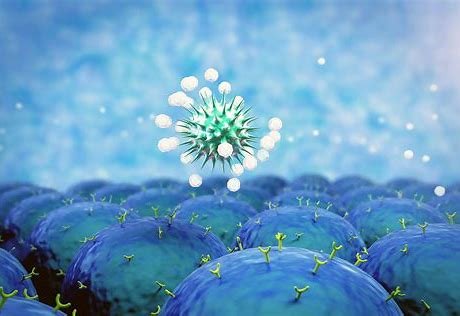How Might Biomolecular Condensates Revolutionize Drug Discovery?
18 August 2022 | Thursday | Opinion

Image Source : Public Domain
A new perspective published in Nature Reviews Drug Discovery examines the potential of biomolecular condensates to transform drug discovery. Condensates are membrane-less organelles that form dynamically throughout the cell via a process called phase separation. Over the last decade scientists have recognized the role of biomolecular condensates in cellular organization and disease, marking one of the most revolutionary areas of biology.
In "Modulating biomolecular condensates: a novel approach to drug discovery," a Dewpoint Therapeutics perspective, the authors discuss the largely untapped opportunities for targeting biomolecular condensates to develop therapeutic agents for various diseases. "To our knowledge, this is the first time that a cohesive logic has been assembled outlining how a deep understanding of condensate biology can revolutionize the drug discovery process across therapeutic areas," commented Dr. Isaac Klein, Chief Scientific Officer at Dewpoint Therapeutics and corresponding author.
The authors propose that condensate dysregulation may represent a node of disease origination in patients with different genetic background and environmental exposures, and that these nodes can be leveraged as drug targets. Classical drug discovery focuses on modifying the function of a single target biomolecule. By reimagining the drug target as the molecular community which resides within a condensate, researchers can modify the function of biological pathways and biomolecules that were previously considered "undruggable." Another promising aspect of condensate drug discovery is that by targeting a disease node, a single therapeutic agent might help treat a larger patient population.
"Condensates are unlike anything seen before in drug discovery. Dewpoint is leading the understanding of condensates and the diverse ways new medicines could be developed to restore aberrant condensate function. No one has previously published the potential of biomolecular condensates from a drug discovery perspective, and Dewpoint scientists are bringing forward a groundbreaking perspective to the field," commented Dr. Mark Murcko, Dewpoint Therapeutics Board and Scientific Advisory Board member, and co-corresponding author.
The perspective summarizes the rules that underlie the formation, dissolution and regulation of biomolecular condensates, which have emerged in the last decade. Based on these rules, the authors discuss how condensate dysfunction drives various diseases, including neurodegeneration, cancer, cardiomyopathy and viral infection. Klein comments, "Dewpoint has developed a platform and drug discovery pipeline that exploits cutting-edge technology and a deep understanding of condensate biology to discover novel condensate modifiers, or c-mods. These molecules have the ability to tackle the root cause of complex diseases and address previously undruggable targets."
Condensate-targeted drug discovery was pioneered by Dewpoint Therapeutics as the first biotech company to enter the field, founded in 2018. New rules for the design of condensate modifying therapeutics are continuously evolving along with the new discoveries in the field. Similarly, discovery pipelines are actively under development, bringing hope for new life-saving treatments for patients suffering from debilitating, uncurable diseases.
Note :
The article is viewable in Nature Reviews Drug Discovery: https://rdcu.be/cTLfy
Authors for the article include Diana M. Mitrea, Matthäus Mittasch, Beatriz Ferreira Gomes, Isaac A. Klein and Mark M. Murcko
Most Read
- Innovations In Magnetic Resonance Imaging Introduced By United Imaging
- Management of Relapsed/Refractory Multiple Myeloma
- 2025 Drug Approvals, Decoded: What Every Biopharma Leader Needs to Know
- BioPharma Manufacturing Resilience: Lessons From Capacity Expansion and Supply Chain Resets from 2025
- APAC Biopharma Review 2025: Innovation, Investment, and Influence on the Global Stage
- Top 25 Biotech Innovations Redefining Health And Planet In 2025
- How Health Systems Are Reshaping Drug Adoption, Partner Models, and Market Access in 2026
- The New AI Gold Rush: Western Pharma’s Billion-Dollar Bet on Chinese Biotech
- Single-Use Systems Are Rewiring Biopharma Manufacturing
- The State of Biotech and Life Science Jobs in Asia Pacific – 2025
- Asia-Pacific Leads the Charge: Latest Global BioSupplier Technologies of 2025
- Invisible Threats, Visible Risks: How the Nitrosamine Crisis Reshaped Asia’s Pharmaceutical Quality Landscape
Bio Jobs
- Sanofi Turns The Page As Belén Garijo Steps In And Paul Hudson Steps Out
- Global Survey Reveals Nearly 40% of Employees Facing Fertility Challenges Consider Leaving Their Jobs
- BioMed X and AbbVie Begin Global Search for Bold Neuroscience Talent To Decode the Biology of Anhedonia
- Thermo Fisher Expands Bengaluru R&D Centre to Advance Antibody Innovation and Strengthen India’s Life Sciences Ecosystem
- Accord Plasma (Intas Group) Acquires Prothya Biosolutions to Expand Global Plasma Capabilities
- ACG Announces $200 Million Investment to Establish First U.S. Capsule Manufacturing Facility in Atlanta
- AstraZeneca Invests $4.5 Billion to Build Advanced Manufacturing Facility in Virginia, Expanding U.S. Medicine Production
News











